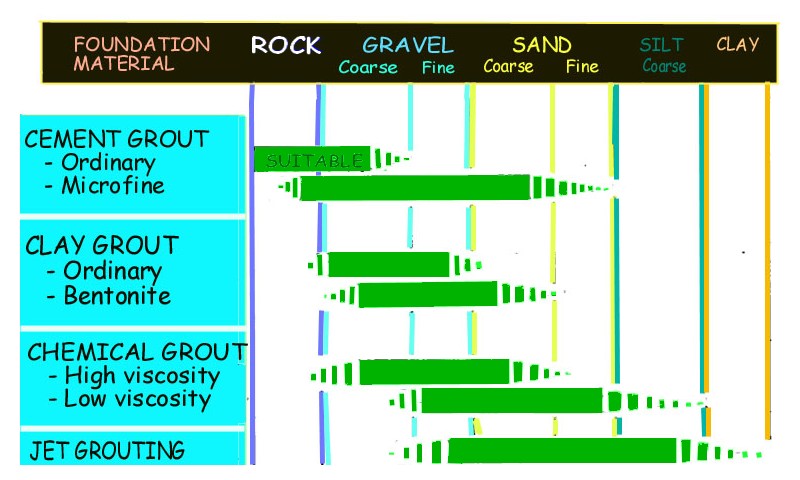So far this programme has been dealing with cement grout - a mixture of cement, water and maybe an additive. But there are other types of grout, each having its own particular purpose. They are mentioned here for interest.

ORDINARY CEMENT
is a Portland cement and is the type commonly used for this type of grouting. It is
a hydraulic cement, which means that it reacts with water to set and form a hard product.
MICROFINE CEMENTS
Some grouts use this to facilitate penetration. These cements are much finer than ordinary cements and
this means they can flow into finer cracks, and can sometimes penetrate adequately in alluvials.
Other types of cements used include oilwell, rapid-setting and specially formulated cements (not shown in the tabulation above).
CLAY GROUTS
are suspensions of finely ground clay in water. Bentonite is the usual clay, but
attapulgite or suitable local clays have been used.
CHEMICAL GROUTS
use formulations which react after a set time to form a gel, usually. Because the
ingredients are fluids they do not have particles (such as cement) to restrict flow through fine voids.
JET GROUTING
uses very high pressure jets radiating from the grout holes to form voids, which are
then filled with cement grout.
In ROCK GROUTING cement grouts are nearly always the best choice. Chemical and clay grouts have a role when grouting gravel and sand.
The tabulation above compares the suitability of various grouts in different foundation materials. This tabulation is only for the purpose of giving an idea of the uses for the various grouts. It is deliberately vague because anything more precise would be misleading.
Here is a suggestion: If you have reached this page without going to "HOME", then go there now to get access to the many pages listed there.